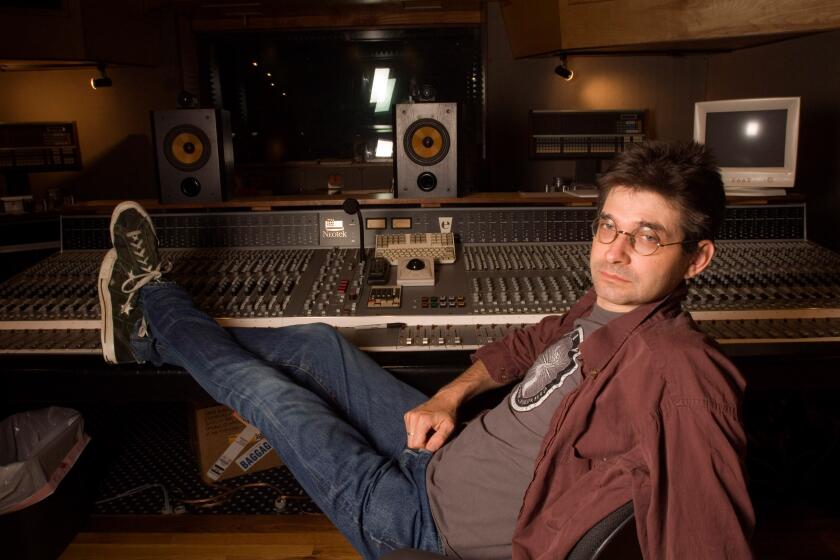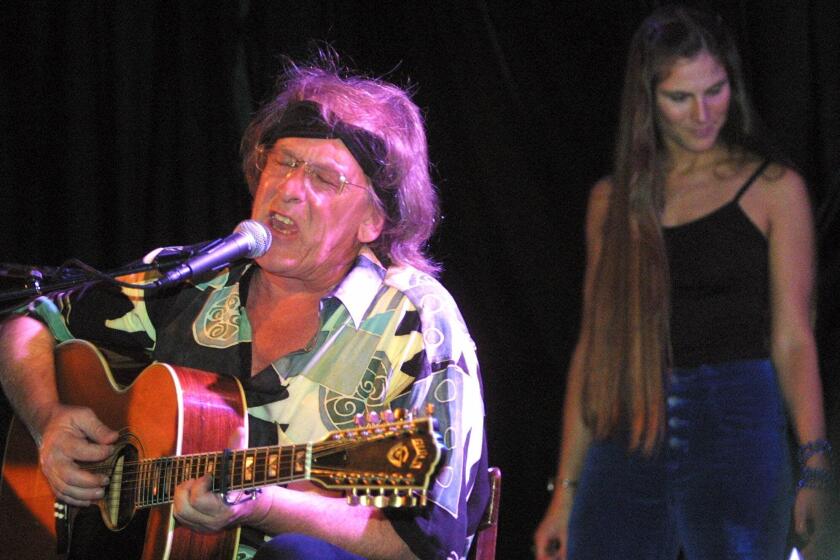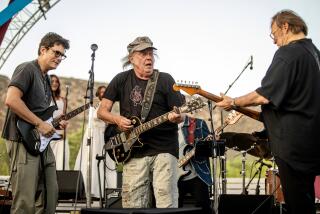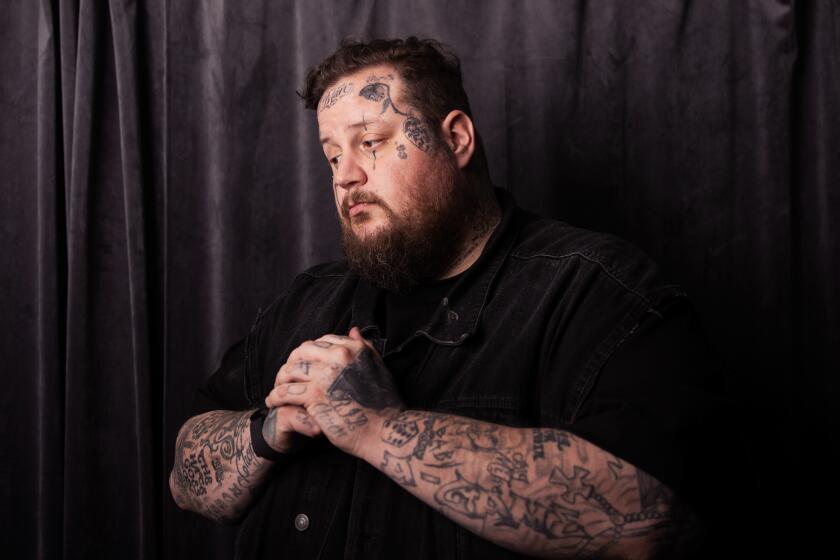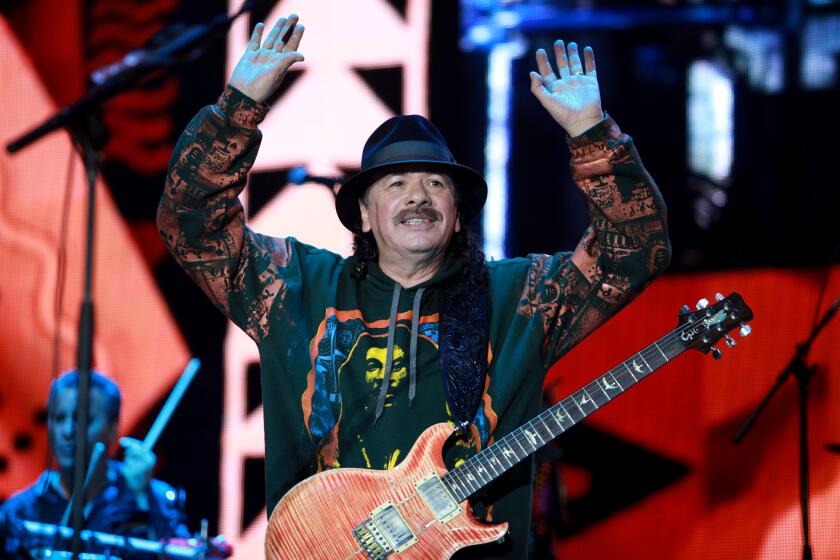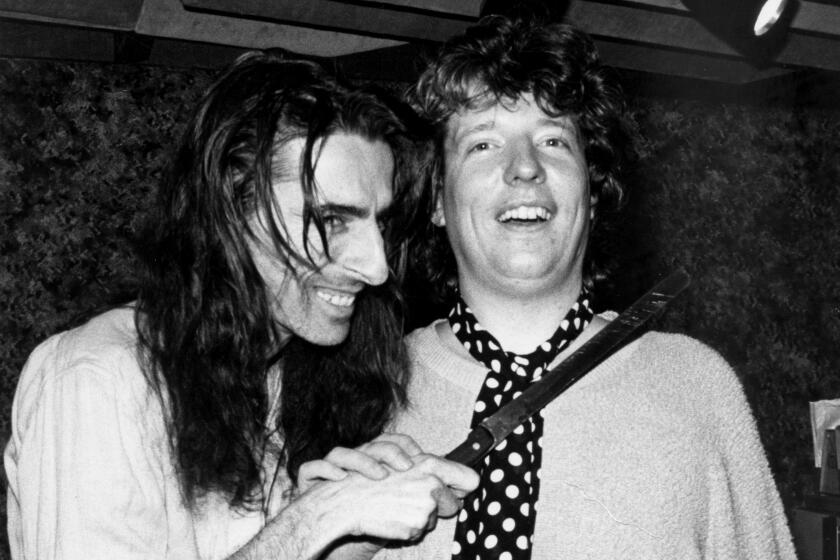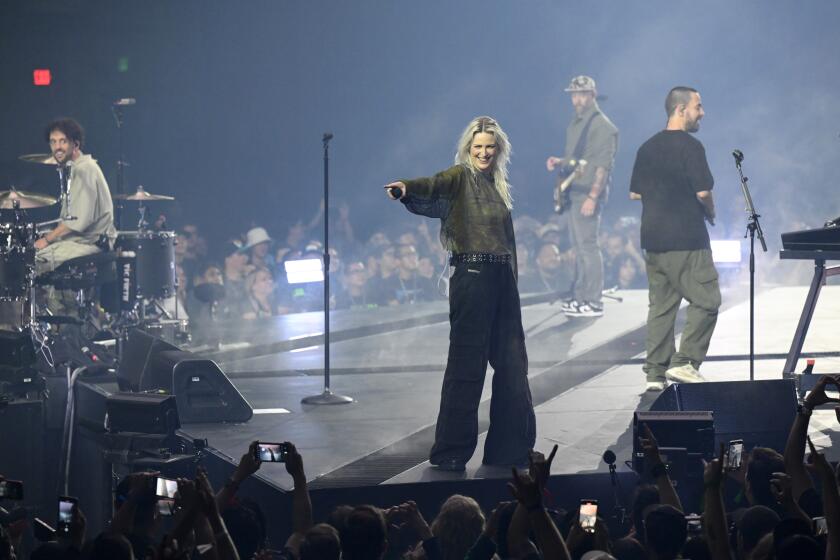John Barbata, drummer for the Turtles, CSNY and Jefferson Airplane, dies at 79
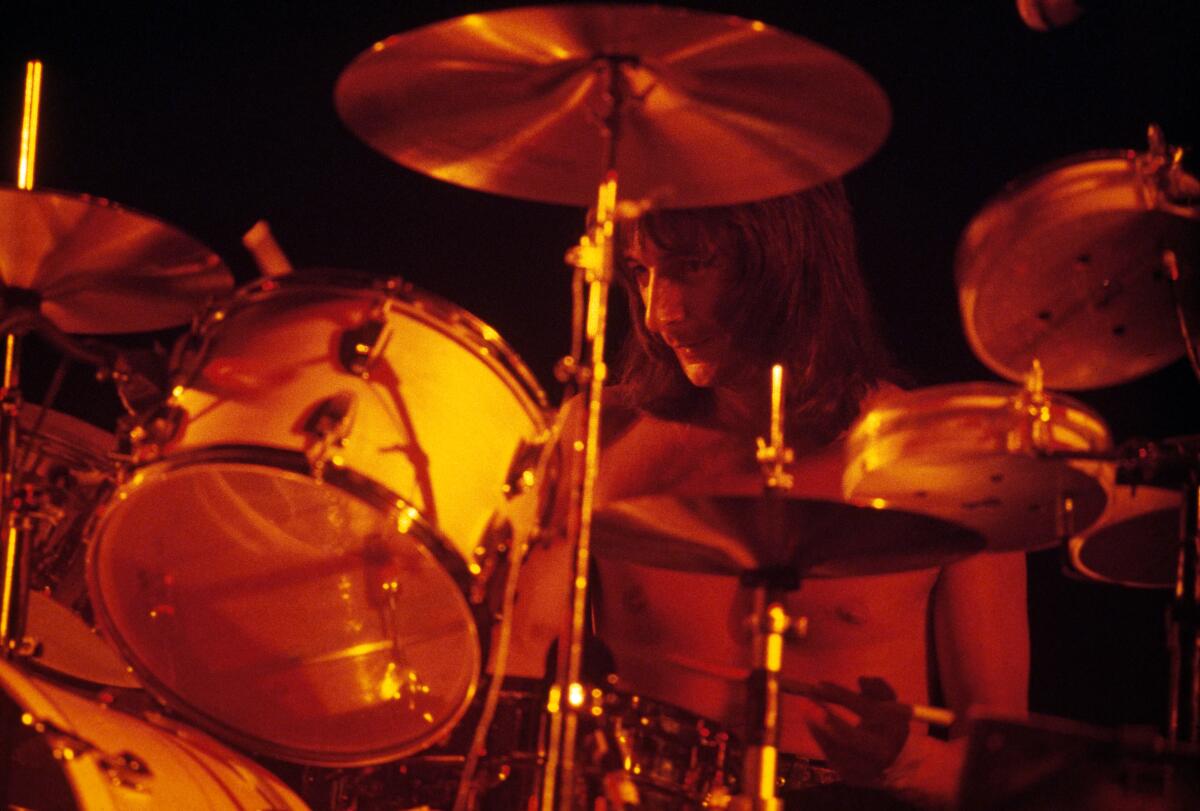
- Share via
John Barbata, the classic rock drummer who played on era-defining records by the Turtles, Jefferson Airplane and Crosby, Stills, Nash & Young, has died. He was 79.
Jefferson Airplane (and its offshoot Jefferson Starship) confirmed Barbata’s death in official posts on their social media accounts. A full list of survivors was not immediately available.
Known as a giant of punk and experimental rock music from the 1980s to the present day, Albini produced and engineered records for Nirvana, the Pixies, PJ Harvey and others.
Barbata was “known for his exceptional talent,” Jefferson Airplane wrote in its statement announcing his death. “Back in ‘72, during a hiatus for CSN&Y, David Crosby introduced John to the Airplane, who hired John instantly. You can hear John’s drumming skills on the band’s final studio album, ‘Long John Silver,’ as well as the live album ‘Thirty Seconds Over Winterland.’”
For the record:
3:58 p.m. May 16, 2024An earlier version of this story said John Barbata performed on the Turtles’ 1969 album “Turtle Soup.” He did not play on that album.
Barbata, born April 1, 1945, in New Jersey, moved to Southern California as a teenager, playing in surf-rock bands — he was a member of the Sentinels, whose “La Tinia” was a local radio hit in 1961 — before joining the Turtles, then riding high after their 1965 cover of “It Ain’t Me Babe.” Barbata recorded on their chart-topper and defining track “Happy Together” and the follow-up smash “She’d Rather Be With Me.”
Barbata stayed with the group through 1967’s “Happy Together” and 1968’s “The Turtles Present the Battle of the Bands.” In his memoir, he recalled a wild London trip where he partied with John Lennon, Paul McCartney and the Rolling Stones’ Brian Jones, a night that went sideways when a Turtles roadie spilled a pitcher of beer on Lennon.
After the Turtles broke up, Barbata joined CSNY for a run of tour dates that were documented on the live album “4 Way Street,” where he played drums on Neil Young‘s “Ohio,” written in the wake of the Kent State campus shootings.
Paul Kantner, the Jefferson Airplane guitarist, songwriter and fixture of the San Francisco ‘60s rock scene, died Thursday of septic shock and organ failure, according to his publicist, who confirmed his death with the San Francisco Chronicle.
When that group went on hiatus, Barbata performed on several of its members’ solo albums, including Young’s “Time Fades Away,” Graham Nash’s “Songs for Beginners” and Stephen Stills’ 1970 self-titled record. (Barbata also famously played a 45-minute drum solo to prevent a riot when 1969’s Atlanta Pop Festival suffered a power outage.)
David Crosby recruited him to join the final Jefferson Airplane lineup, and the band later brought him into Jefferson Starship, where he played on hits like “Miracles” over four LPs: 1974’s “Dragon Fly,” 1975’s “Red Octopus”, 1976’s “Spitfire” and 1978’s “Earth.”
Along the way, he recorded and toured with Linda Ronstadt, Joni Mitchell, Leon Russell, Doctor John, the Everly Brothers and many more. Barbata, as he recounts in his memoir, declined both an opportunity to drum for Elvis Presley and a chance to join the Eagles, telling the Phoenix New Times that “[David] Geffen walked over to me and said, ‘There is a new group forming, and they want you to be part of it. They are called the Eagles.’ I said, ‘Who the hell are the Eagles? I never heard of them.”
A 1978 car accident and long recovery necessitated his departure from Jefferson Starship, and he largely left the music industry afterward. Barbata published a memoir, “The Legendary Life of a Rock Star Drummer,” in 2005. He eventually moved to southern Oklahoma, where he spent his last years.
“It was a wild ride, and one that I’m glad I had the opportunity to experience,” Barbata told the Oklahoman in 2005. “It was an experience, and one that allowed me to make a lot of money doing what I love to do: make music and perform. I met a lot of great people, learned a lot of hard lessons and eventually met the woman of my dreams.
“What more could a guy from New Jersey ask for?”
More to Read
The biggest entertainment stories
Get our big stories about Hollywood, film, television, music, arts, culture and more right in your inbox as soon as they publish.
You may occasionally receive promotional content from the Los Angeles Times.
